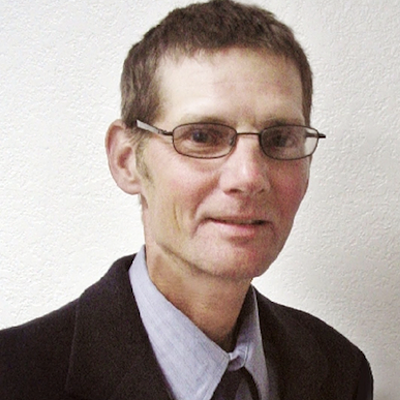Strauch, executive director of TMM Family Services, has concerns about a recently implemented employer-assisted housing-challenge program. That effort was developed by the Tucson Housing Trust Fund Citizens Advisory Committee, of which Strauch is a member.
According to a press release issued last April, the city and committee were offering funds to Tucson employers interested in creating more affordable housing for some of their workers. Applications had to address seven general criteria; for example, assisted employees have to live within the city limits, and they have to earn less than the median income.
Only four applications were received in response to the program solicitation. They came from the Tucson Unified School District, La Frontera Center, Tucson Medical Center and Community Extension Programs, Inc.
All the applications had several things in common. Each employer was going to offer either $2,000 or $5,000 of city-funded assistance to qualified employees who wanted to be first-time homebuyers. Each application also proposed an employer match of between $1,000 and $2,500 to assist with the home purchase.
Another shared characteristic of most of the applications--a characteristic that has Strauch concerned--is the fact that the applicants will be employing the expertise of both Old Pueblo Community Services and Live the Solution, two nonprofit agencies which focus on housing assistance programs.
One reason for Strauch's concern: Terry Galligan, housing development director for Old Pueblo Community Services, is also a member of the housing trust fund committee. He sits on the board of directors of Live the Solution, too.
"I'm not going to just sit down and be an advisory person," Galligan says of his role in the process. "We wouldn't have had anybody apply if we hadn't knocked on doors. Besides, the city encouraged employers to partner with nonprofits."
While Galligan didn't participate in the committee's review of the applications, Strauch sees Galligan's multiple roles in the process as a problem.
"With Old Pueblo Community Services," Strauch says of his former employee Galligan, "you have the appearance of a conflict of interest, because only the four contracts were awarded."
This isn't the first time Strauch has pointed out potential conflicts of interest on the committee as an issue. Beginning with a December 2007 e-mail to the city's Community Services Department, he expressed reservations about committee members having an "inside track" to housing funds.
Galligan says he did talk directly to La Frontera about the committee's program after it was announced. He also says he prepared a draft application for them.
The other applications, Galligan states, were arranged through third parties, including Live the Solution. While Galligan says he had hoped for more interest in the program, Strauch faults the city's efforts to solicit applications.
"They should have made the process wider and broader," Strauch says, "by inviting nonprofit agencies (which deal with housing) to sit down and learn how successful the program could be. ... These agencies should have been encouraged to participate."
Ron Koenig, of the city's Community Services Department, says that in addition to the press release, a direct mailing went to the community's top 200 employers. But nonprofit housing groups weren't contacted, he adds, because the program was focused on employers.
Contracts totaling $120,833 have either been executed or are being negotiated with the four applicants. Meanwhile, Strauch questions what exactly Old Pueblo Community Services and Live the Solution will be doing as part of the program.
According to Galligan, all four projects will be handled similarly. First, his agency will screen applicants to ensure they meet the program qualifications. "For every 10 people you talk to," Galligan points out, "one will meet the criteria."
For those who do qualify, Old Pueblo Community Services will provide an eight-hour training class over two days, followed by one-on-one sessions. The topics covered will include budgeting, credit reports, handling debt, searching for a mortgage and working with a real estate agent.
Live the Solution will then provide the applicants with referrals of real estate agents who have agreed to donate either 50 or 100 percent of their sales commission toward the home purchase. The group will also offer participants two free classes titled "Financial Solutions for Life."
For their involvement with the program, both Old Pueblo Community Services and Live the Solution will be paid $375 for each eligible household.
"In some ways," Strauch acknowledges, "$750 isn't enough (for this service). But some agencies do it for free, so the committee should have had some sense of the range of acceptable hours."
So far, Galligan reports two loan closings have occurred at La Frontera, and three or four other employees are looking at homes. He adds that the city's contract with TMC has just been ratified, while TUSD held a meeting recently with about 15 interested teachers. Community Extension Programs is soliciting participants.
"It's going a bit slower than I wanted it to go," Galligan says of the program to date.
Despite his reservations about how the application process was handled, Strauch ended up supporting the contract awards. "I wouldn't use that to vote against it," he says. "I want the program to happen."












